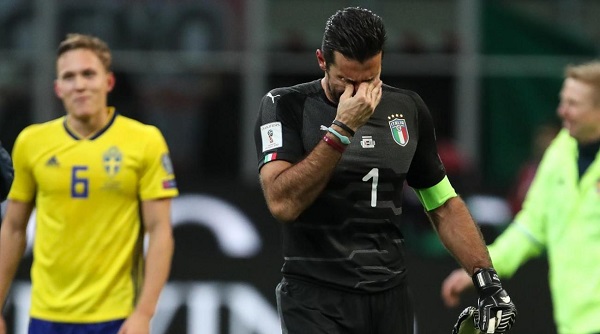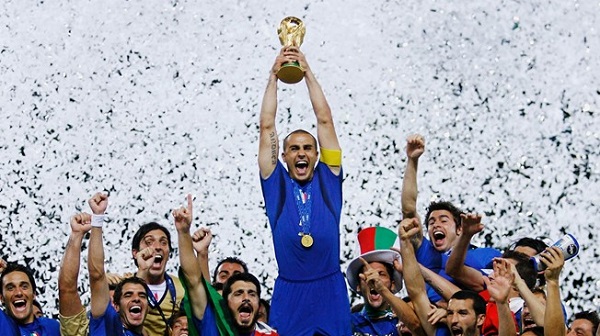
The 2018 World Cup came to an end on Sunday having seen many surprises: the elimination of top teams, such as Germany, Spain and Argentina, in the early stages as well as England reaching the semi-finals, and Croatia their first final, losing to France, who won their second title after twenty years.
But well before the tournament started, another massive shock hit football lovers as Italy did not qualify. It had only happened once before, in 1958, and it also had an impact on the Italian economy.
Back in November 2017, the reactions from the Italian press and the Italian people were varied: shock, sadness, anger mixed with understanding, irony, and a sense of justice, as football is gradually losing its importance as cultural marker in Italian social history and identity.
Once the “apocalypse” had been digested, and the World Cup started, it was interesting to see how much attention there was for the tournament. The decision of RAI – the Italian national broadcaster – to leave the World Cup rights to Silvio Berlusconi’s controlled Mediaset, probably under the false impression that Russia 2018 would pass unnoticed, proved an underestimate of Italians’ love for football.
Italians for once watched the World Cup from the outside, and still enjoyed it. They picked a team for every match, or for the whole tournament, they enjoyed excellence and suffered for lack of luck or justice, commenting (as usual) on cheating, refereeing, on the VAR system – which was in use in Serie A, the prestigious Italian top league, during the 2017-18 season.

Italy celebrate after winning the World Cup in 2006 (image ©FIFA).
The media concentrated on football discussions and chitchat. Which team are Italians supporting? How many “Italians” (i.e. Italy-based footballers) are playing in the World Cup (it was 58), and in the final (it was 7, or actually 8)? For football followers the World Cup is an incredible show, and Italians did want to be part of it.
As for the Italian football team, it will hopefully recapture the glorious achievements of the past, Italy having won four World Cups, as well as reaching the final on two further occasions in 1970 and 1994, and the semis in 1978 and in 1990, the latter on Italian soil. Supporting Italy is a rather romantic, if not frustrating commitment. The continuous ups and downs are stressful yet rewarding.
If you are Italian, and you care for football, you love the national team. As historian John Foot, author of Calcio – a History of Italian Football, argues, the 1982 World Cup victory was a moment in Italian history that united the whole country. An Italian loves Italy’s successes, and (sort of) accepts its failures, in the understanding that if you go out to South Korea in the Round of 16 (2002), you can still win the World Cup in 2006 (and then be eliminated at the group stages in the next two tournaments!).
Roberto Baggio misses his penalty against Brazil at USA 1994. Brazil are World Champions.
Italy’s most loved player, Roberto Baggio - FIFA World Player of the Year in 1993, winner of the Ballon d'Or in the same year - famously missed a penalty in 1994 World Cup final against Brazil after having led the team to the final, a moment recalled in a passionate book by football journalist and writer Darwin Pastorin, which witnesses the unconditional love that probably only Italian people can give to this sport.
The 2018 World Cup came to an end with France as champions. France, who kicked Italy out of the 1998 World Cup and won the 2000 UEFA European Championships with a golden goal after Italy was still leading at the 93rd minute. The same France that was beaten by Italy in the 2006 World Cup final. What did we just say about ups and downs?